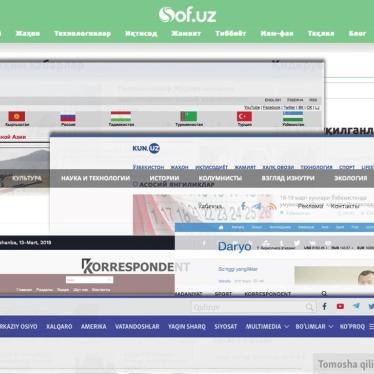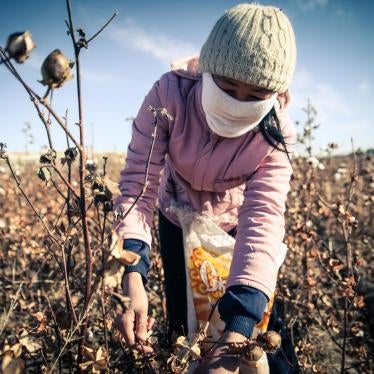Enslaving children and torturing dissidents is never chic.
The daughter of Uzbekistan’s dictator planned to unveil her spring fashion line at New York City’s prestigious Fashion Week. But her show was canceled after Human Rights Watch and a coalition of like-minded organizations spotlighted her connection to her father’s tyrannical government.
Gulnara Karimova isn’t just the eldest daughter of Islam Karimov – Uzbekistan’s autocratic leader since the Soviet era – she also serves as the government’s ambassador to Spain and the United Nations, a high-level position in a regime known for imprisoning and torturing political opponents and rights activists. Her father’s government forces up to two million Uzbek children to leave school for two months each year to pick cotton – a fabric woven throughout Karimova’s designs.
Karimova maintains a jet-setter lifestyle, which includes making a pop video with Julio Iglesias and launching her fashion line “Guli.” But according to a cable released by Wikileaks, US diplomats said most Uzbeks view her as “a greedy, power-hungry individual who uses her father to crush business people or anyone else who stands in her way.”
To get her Fashion Week show canceled, Human Rights Watch reached out to senior management at IMG, the event organizer, and Fashion Week’s main sponsors, like Mercedes-Benz – providing examples of the abuses that our Uzbekistan researchers documented on the ground.
We planned our Fashion Week campaign together with like-minded organizations, such as the International Labor Rights Forum and the American Federation of Teachers, which have successfully convinced Gap, H&M, and other major retailers to pledge that they won’t buy Uzbek cotton.
Roughly two weeks before Karimova’s show, slated for today, Human Rights Watch Executive Director Kenneth Roth spoke with IMG’s top management about the risks to the event’s reputation when someone who represents a highly abusive government is a participant.
IMG management responded positively to us and began to distance themselves and Fashion Week from Karimova.
We also contacted Fashion Week’s corporate sponsors, including Mercedes-Benz, as well as the fashion media and other journalists, about our concerns. We told them about how children working in Uzbekistan’s cotton fields – harvesting the country’s main cash crop – live in filthy conditions, often get sick, and work for little or no pay.
We also stressed how no one in Uzbekistan has been held accountable for the 2005 massacre in Andijan, when government troops opened fire on mostly unarmed protesters, killing hundreds. Many of the country’s journalists and human rights defenders are jailed, and prisoners routinely tortured. Uzbekistan’s clampdown on nongovernmental organizations is so widespread that, earlier this year, Uzbek authorities forced Human Rights Watch to close our office in the capital, Tashkent – the first time in our 33-year history that a government shut one of our offices. In years prior, Uzbekistan had also closed local operations of Freedom House, the Open Society Institute, BBC, Deutsche Welle, and many others.
On the opening day of Fashion Week, the New York Post ran a front-page story, pitched by Human Rights Watch, with a soon-to-be-classic headline, “Dressed to Kill: Daughter of Murderous Dictator to Unveil Spring Line at Fashion Week.” It ignited a wave of global media coverage.
An IMG spokesperson told the press that, “We’re horrified by the human-rights abuses in Uzbekistan, and hope that the attention Human Rights Watch generates is able to effect change in the country. We also hope to work hand-in-hand with Human Rights Watch during Fashion Week and beyond to challenge those in power in Uzbekistan to take action immediately.”
Daimler, the parent company of the event’s main sponsor, Mercedes-Benz, also publicly distanced itself from Karimova. A company spokesperson told the German newspaper Die Tageszeitung that “Daimler has no interest in providing an open platform for a person who has been proved guilty of violating human rights.”
As the pressure grew, IMG canceled her Fashion Week show.
Human Rights Watch is now working with IMG and the event’s sponsors, urging them to better vet their potential participants so that abusers don’t have Fashion Week as a platform.
It’s fitting that Fashion Week won’t showcase a designer who represents such a repressive government. It sends a strong message: abusers shouldn’t be allowed to launder their image at the expense of human rights.






